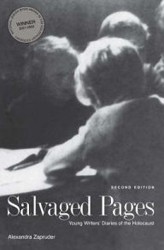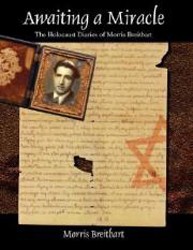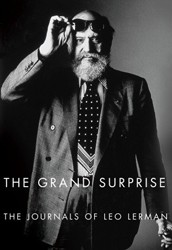By
– December 19, 2011
This is not an anthology of excerpts from diaries written during the Holocaust, although there are a few brief excerpts. Starting out as a dissertation, it is an examination of the function of diary-writing to the authors whose lives had changed so drastically that each day was lived in shock and incredulity of what they were witnessing and experiencing. Only a few Jews wrote in diaries. They had to have the strength and to have a proclivity for writing. They wrote because they were struggling to understand what was happening to them. The content and complexion of the entries change from those written at the beginning of the war to those recorded during the worst horrors. What was the function of the diaries? Some writers gained comfort from them, parenting children vicariously. Others were transmitting information to future generations of family and strangers — leaving a record for the future. Diary writing also furthered the diarist’s struggle to retain a sense of identity. Through their multiple stories, related primarily by the author with only the briefest excerpts by the writers, the reader gains insight into individual reactions, rather than the broad picture. Primo Levi and others wrote that the only relief they realized was the brief time they found a kindred cultured soul who had the strength to discuss literature, art, or music — some piece of the cultured and sane world they had left behind. The act of writing in a diary was not a release for the writers; it was drudgery, tiring, but something the writers felt they had to do. It was also dangerous to write a diary, an act that would be severely punished if discovered, and would also harm the righteous gentiles who might be hiding the writer. Diary writing was not only a Jewish response to persecution, but was, in fact, a modern European practice that sought to perpetuate Western values of civilization — historical justice — in the face of Nazi barbarism. The writers wanted to ensure that what they had lived through would never be repeated — that humanity would learn from their experiences — but also that although oriented to the future, the world would remember the past. It would have been good to have more examples of the diarists’ writing, but this is an insightful and excellent addition to this genre with many valuable notes and bibliographical entries. Bibliography, index, notes.
Marcia W. Posner, Ph.D., of the Holocaust Memorial and Tolerance Center of Nassau County, is the library and program director. An author and playwright herself, she loves reviewing for JBW and reading all the other reviews and articles in this marvelous periodical.





